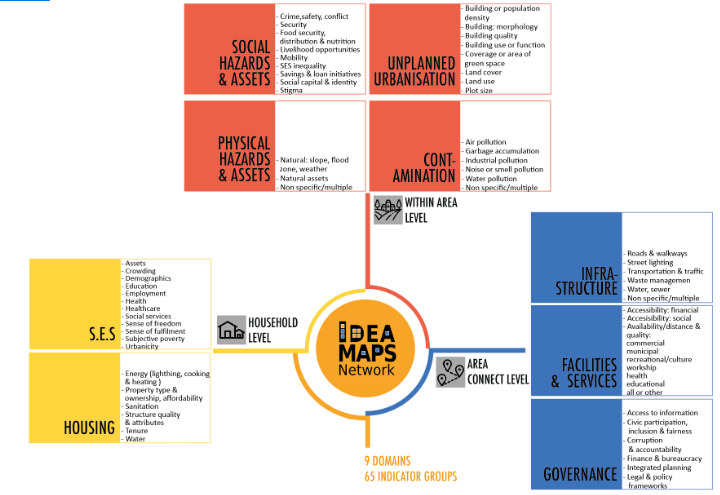The majority of urban inhabitants in low- and middle-income country (LMIC) cities live in deprived urban areas. However, statistics and data (e.g., local monitoring of Sustainable Development Goals - SDGs) are hindered by the unavailability of spatial data at metropolitan, city and sub-city scales. Deprivation is a complex and multidimensional concept, which has been captured in existing literature with a strong focus on household-level deprivation while giving limited attention to area-level deprivation. Within this scoping review, we build on existing literature on household- as well as area-level deprivation frameworks to arrive at a combined understanding of how urban deprivation is defined with a focus on LMIC cities. The scoping review was enriched with local stakeholder workshops in LMIC cities to arrive at our framework of Domains of Deprivations, splitting deprivation into three different scales and nine domains. The Domains of Deprivation framework provides a clear guidance for collecting data on various aspects of deprivation, while providing the flexibility to decide at city level which indicators are most relevant to explain individual domains. The framework provides a conceptual and operational base for the Integrated Deprived Area Mapping System (IDEAMAPS) Project for the creation of a data ecosystem, which facilitates the production of routine, accurate maps of deprived “slum” areas at scale across cities in LMICs. The Domains of Deprivation Framework is designed to support diverse health, poverty, and development initiatives globally to characterize and address deprivation in LMIC cities.

